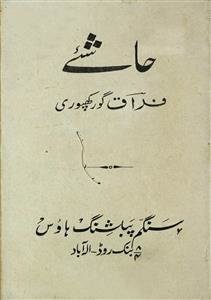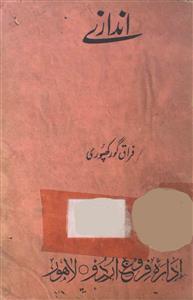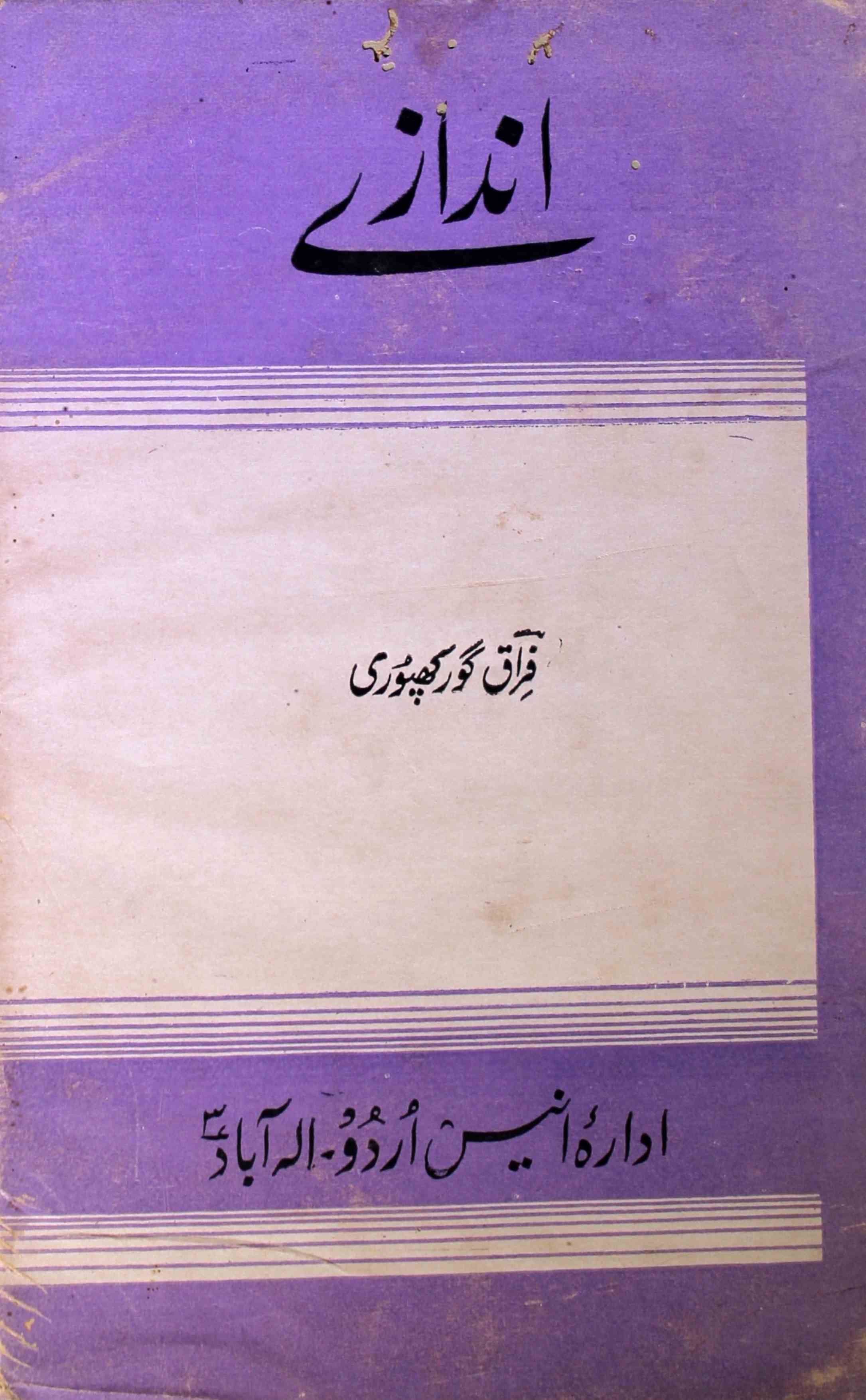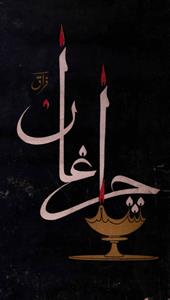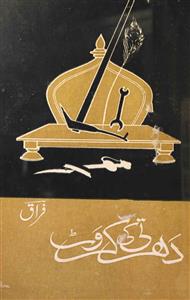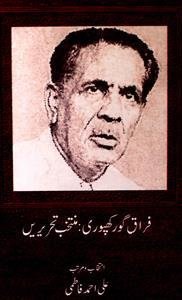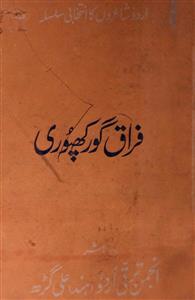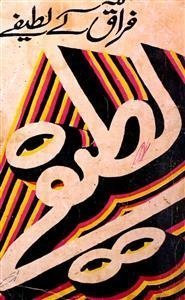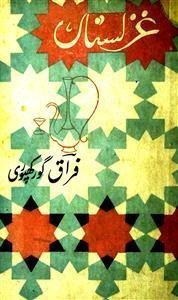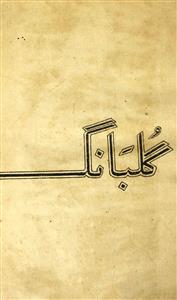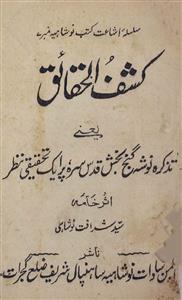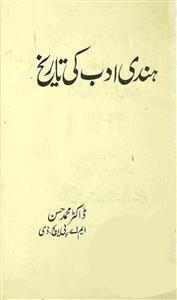 For any query/comment related to this ebook, please contact us at haidar.ali@rekhta.org
For any query/comment related to this ebook, please contact us at haidar.ali@rekhta.org
About The Book
"حاشیے"فراق گورکھپوری کی ایک مختصر تنقیدی کتاب ہے۔اس کتاب میں کل چھ مضامین شامل ہیں، پہلا مضمون ربندر ناتھ ٹیگور پر ہے ۔یہ مضمون فراق کے تنقیدی مضامین میں اولیت کا درجہ رکھتا ہے۔اس مضمون میں انھوں نے ٹیگور کی شاعرانہ خصوصیات کو اجاگر کیا ہے۔دوسرا مضمون "ایک سوال کے کئی جواب"ہے اس مضمون میں انھوں نے اردو ہندی جھگڑے کو لیکر نہایت ہی دھیمے لہجے میں مدلل انداز سے اس مسئلے پر اظہار خیال کیا ہے۔تیسرا مضمون "ہم نے مانا کہ دلی میں رہیں گے کھائیں کیا؟" ہے۔ اس مضمون میں ہندوستان کی معاشی صورت حال اور ان کی زبوں حالی پر بحث کی گئی ہے۔چوتھا مضمون "عشقیہ شاعری کی پرکھ"ہے۔یہ مضمون "عشقیہ شاعری " کے عنوان سے جنوری 1946 ء میں "نگار میں شائع ہوا تھا ، اس مضمون میں عنوان کی مناسبت نہایت اختصار کے ساتھ وہ باتیں کہی گئی ہیں جو "اردو کی عشقیہ شاعری"کے موضوعات ہیں۔پانچواں مضمون"چوں نہ دیدند حقیقت رہ افسانہ زدند تاریخ کا غلط نظریہ"ہے۔اس مضمون میں مذہب کے حوالے سے قومیت کی مخالفت کی گئی ہے۔اور کتاب کا آخری اور چھٹا مضمون ہے"غالب پھر اس دنیا میں"یہ مضمون گرچہ تنقیدی نوعیت کا نہیں ہے البتہ اس بات کا ذکر ہے کہ غالب جب جدید دنیا میں واپس آتے ہیں تو وہ پالکی کے بجائے کار وغیرہ دیکھ کر حیران ہوجاتے ہیں،وہ پرانی دہلی کے تمام علاقوں کی سیر کرتے ہوئے کتابوں کی ایک دکان پر پہنچ جاتے ہیں وہاں دیکھتے ہیں کہ دیوان غالب کے مختلف ایڈیشن سنہرے حرفوں میں خط کشیدہ مجلد نظر آتے ہیں، گویا کہ فراق نے اس مضمون میں موجودہ دور میں غالب کی قدر و قیمت کا احاطہ کیا ہے۔
About The Author
A poet which reached unprecedented heights of fame and acclaim, Firaq Gorakhpuri is counted among the most influential and electrifying poets of his time. According to Dr. Khawaja Ahmad Farooqi. If it were not for Faraq, the land of our ghazals would be dull, its ascension would not be more than it would be a carbon copy of Persian master’s ghazals or imitating dead and lifeless Iranian traditions. Firaq stirred a whole generation and still does. He played an important role in nurturing poetry and despite being a poet of beauty and love, he looked at these subjects from a new angle. He not only expressed his feelings and emotions but also presented various results of consciousness and perception. He introduced the readers to the standards and values not only of Urdu but also of world literature and at the same time developed a healthy ideology by emphasizing the powerful aspects of modernity, geography and civilization. Having paved the way, he showed Urdu ghazal new horizons of meaning, thought, word and expression.
Born Raghupati Sahai, Firaq was born in Gorakhpur on August 28, 1896. His father Gorakh Prasad was a landlord and practiced law in Gorakhpur. His native place was Bans village in Gorakhpur tehsil and his family was famous by the name ‘Panch Gaon Ke Kayasth’. Firaq's father was also a poet and used to use the pseudonym Ibrat. Firaq studied Urdu and Persian at home. After that he passed the matriculation examination from Government Jubilee College, Gorakhpur in the second division. Later, at the age of 18, he married Kishori Devi, who proved to be a bitter experience for Firaq. He developed a passion for poetry in his youth and in 1916, when he was 20 years old, and as a BA student he recited his first ghazal. Prem Chand was in Gorakhpur at that time and he had a homely relationship with Firaq. It was Prem Chand who tried to hide the early ghazals of Firaq from the young poet’s parents and sent it to the editor of the time, Diya Narain Nigam. Firaq passed BA from Central College Allahabad and secured the fourth position. In the same year, Firaq‘s father passed away. It was a great tragedy for Firaq. At the same time, he became involved in the country's politics. He was arrested in 1920 for his political activities and spent 18 months in prison. In 1922, he was appointed Under Secretary of Congress. He entered the politics of the country at a time when politics meant setting the house on fire. He had deep ties with the Nehru family and addressed Indira Gandhi as his daughter. But after independence, he continued his political services. He went into politics out of love for the country. Politics was not his field. In 1930, he passed the MA examination in English Literature from Agra University with distinction as a private candidate. And without any application or interview, he became a lecturer in Allahabad University. At that time, the English department of Allahabad University was famous all over the country. Celebrities like Amarnath Jha and SS Deb were the pride of this department. But Firaq lived on his own terms. He had an independent nature. He did not go to class for months and did not attend. Even if he ever went to class, he would start talking on Hindi or Urdu poetry or any other subject apart from the syllabus, that's why he was not given MA classes. He adored Wordsworth and could talk about him for hours. Firaq also contested the parliamentary elections in 1952 at the insistence of Shabban Lal Saxena and had his bail confiscated. In his private life, Faraq was a statue of misguidance. He also had a degree of selfishness in his temperament. He is not well regarded in the society but he neither hid them nor was ashamed of them. Even his loved ones and relatives, especially his younger brother Yadupati Sahai, whom he loved dearly and raised like a son, passed away. His only son committed suicide at the age of seventeen or eighteen. His wife Kishori Devi moved in with her brother in 1958. In this loneliness, alcohol and poetry were his accompaniments. Outside the house, Firaq was honorable, respectable and great, but inside the house, he was a helpless being who had no one to turn to. Apart from his poetry, he was known for his presence of mind, intelligence, knowledge and eloquence. In 1961, he was awarded the Sahitya Akademi Award. In 1968, he was awarded the Soviet Nehru Award. The Government of India conferred on him the title of Padma Bhushan. For this he was awarded the Gyan Peth Award, the highest literary award, which is considered the Nobel Prize for Literature in India. He was also given the Ghalib Award in 1981. On March 3, 1982, when his heart stopped beating, Firaq parted the world of Urdu literature and his last rites were performed with official honors. He was perhaps the very definition of complete Indian.
In terms of poetry, Faraq was a unique voice of the twentieth century. The credit for making sexuality a part of ghazal by making sexuality a part of thought and philosophy goes to Firaq. How the body becomes the universe, what is love? How love turns into a human being and then how he establishes a relationship with life and the universe is all known from the thought and poetry of Firaq. He was as much a thinker as a poet. The search for separation paints a picture of the direction and speed of life and survival and evolution in love. He used to say that Urdu literature has not yet given birth to the concept of woman. In Urdu language, there is no Shakuntala, Savitri and Sita. One of the great virtues and characteristics of Firaq's poetry is that it reflects the greatness and importance of world experiences as well as cultural values. Firaq's poems affect the heart as well as invite thought and this is the quality that sets him apart from all other poets.
 For any query/comment related to this ebook, please contact us at haidar.ali@rekhta.org
For any query/comment related to this ebook, please contact us at haidar.ali@rekhta.org
